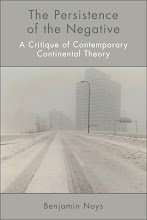
New Issue of Variant Magazine: The Tyranny of Rent
Variant, issue 37, Spring / Summer 2010
...the free, independent, arts magazine. In-depth coverage in the context of broader social, political & cultural issues.
Culture is one of the most important fields in the struggle for a more democratic, egalitarian and free society. If the changes currently proposed to this field by the Polish authorities are not subject to a wide social debate, consultation and criticism, they will bring catastrophic results for both the producers of culture and society as a whole. Culture should be perceived as a public good, not a privilege for a selected group of citizens. The dangers embedded in the governmental proposals for reforms in the domain of culture have already been discussed by artists, theorists, cultural and social activists. All agree that culture is a very specific field of production, and that it would be endangered by an exclusively market-oriented strategy of organizing it.
For the Polish authorities, culture appears to be just another life-sphere ready to be colonized by neoliberal capitalism. Attempts are being made to persuade us that the ‘free’ market, productivity and income oriented activities are the only rational, feasible and universal laws for social development. This is a lie. For us – the cultural producers – culture is a space of innovation and experimental activity, an environment for lively self-realization. This is under threat. Our lives, emotions, vulnerability, doubts, purposes and ideas are to become a commodity – in other words, a mere product to fuel the development of new forms of capitalist exploitation. It is not culture that needs “business exercises” it is the market that needs a cultural revolution. That revolution should not be understood as a one time “coup d’état”, but as a permanent, vigilant and compassionate dissent, a will to protest against, verify and criticize any form of colonization of the field of culture for the private interests of market players and bureaucrats.
Therefore we say: “We would prefer not to”. Our resistance is an expression of our more general protest against the commodification of social relations, its reifying character and general social injustice. We hereby express our existential and political solidarity with the people who oppose this marketization of all spheres of social and personal life. Culture plays an important role as a space for experimentation and reflection, for creating mutual trust and bonds between people. Cultural interactions based on the spontaneous activity of individuals and groups play a crucial role for the development of the society, including its economic dimension. Recognizing the importance of this is a necessary step in creating a space for self-realization and democratic debate.
Contents
Editorial
Radical Change In Culture / Manifesto
On bullshit in cultural policy practice & research
Eleonora Belfiore
Remembering Brian Barry
Femi Folorunso
Launch of ‘Friends of Belge’ : An Appeal for Solidarity
Desmond Fernandes
Print Creations Comic & Zine reviews
Mark Pawson
Doodley-doo? Doodley don’t! Life and Sabotage
Gesa Helms
Comment : "Art Workers Won’t Kiss Ass"
Owen Logan
Precarious Labor: A Feminist Viewpoint
Silvia Federici
Overidentification and/or bust?
Stevphen Shukaitis
Learning to Breathe Protest
Salong, Interflugs, Academy of Refusal, 10th Floor
‘We have decided not to die.’
On taking and leaving the University
Marina Vishmidt
The Tyranny of Rent
Neil Gray


